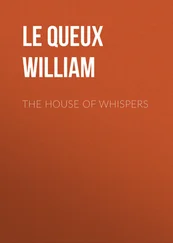William Le Queux - This House to Let
Здесь есть возможность читать онлайн «William Le Queux - This House to Let» — ознакомительный отрывок электронной книги совершенно бесплатно, а после прочтения отрывка купить полную версию. В некоторых случаях можно слушать аудио, скачать через торрент в формате fb2 и присутствует краткое содержание. Жанр: Классический детектив, foreign_detective, foreign_prose, на английском языке. Описание произведения, (предисловие) а так же отзывы посетителей доступны на портале библиотеки ЛибКат.
- Название:This House to Let
- Автор:
- Жанр:
- Год:неизвестен
- ISBN:нет данных
- Рейтинг книги:5 / 5. Голосов: 1
-
Избранное:Добавить в избранное
- Отзывы:
-
Ваша оценка:
- 100
- 1
- 2
- 3
- 4
- 5
This House to Let: краткое содержание, описание и аннотация
Предлагаем к чтению аннотацию, описание, краткое содержание или предисловие (зависит от того, что написал сам автор книги «This House to Let»). Если вы не нашли необходимую информацию о книге — напишите в комментариях, мы постараемся отыскать её.
This House to Let — читать онлайн ознакомительный отрывок
Ниже представлен текст книги, разбитый по страницам. Система сохранения места последней прочитанной страницы, позволяет с удобством читать онлайн бесплатно книгу «This House to Let», без необходимости каждый раз заново искать на чём Вы остановились. Поставьте закладку, и сможете в любой момент перейти на страницу, на которой закончили чтение.
Интервал:
Закладка:
“This must be a bit slow for you and your friend, and the night is young. What do you say to a game at bridge?”
Yes, Captain Murchison would welcome a game of bridge, anything as a relief to this vulgarian’s conversation.
They played for over two hours, Murchison keenly alert from certain suspicions that had been forming in his mind. At present there was no foundation for these vague suspicions. They played for small stakes, but the visitors rose up the winners, not by a great amount, but still winners.
It was a fine night, the two men walked back to their quarters.
“How did you get on with the charmer? I saw you seemed very confidential together,” asked the older man.
“Splendidly, old chap. She told me a lot about her history.” Pomfret related all he had been told in full. “And how did you get on with the brother?”
“Don’t ask me,” replied Hugh with a groan. “He’s the most insufferable creature I ever came across. I don’t really think I can go there again. At the beginning of the evening he started fairly well, but later he reverted to type.”
“Well, I may as well tell you straight, I shall. The next time we go I’ll take a share of the brother.”
When Pomfret spoke in that tone he meant what he said, and Hugh knew he would have his own wilful way.
There was one piece of information which the young subaltern had not imparted to his friend.
It was this – that after much pressing, and more than one refusal, Miss Burton had agreed to meet him to-morrow afternoon at a very sequestered spot about a mile and a half from Blankfield, with the view of pursuing their acquaintance.
Chapter Five
From the night of that dinner-party Murchison noted a subtle difference in his young friend’s demeanour. Pomfret had always been a harum-scarum sort of young fellow, accustomed to follow erratic and injudicious impulses, not absolutely devoid of brains of a certain order, but of imperfect and ill-balanced mentality.
But in his wildest escapades he had always been frank and above-board. And he was ever the first, when he had overstepped the border-line, to admit that he was in the wrong. And on such occasions, far from justifying his exploits, he had been ready to deplore them.
But his frankness seemed to have departed from that night. He seemed rather to avoid than seek the society of his old friend and mentor. When Hugh brought up the subject of the Burtons, Pomfret seemed anxious to avoid it, to say as little as possible. He seemed to shut himself up within his own soul.
Hugh, of course, was profoundly uneasy. Such a transparent creature as Pomfret would not be likely to retire within his own shell unless there were cogent reasons for the withdrawal. And the reasons were inspired by the attractive personality of the fascinating siren at Rosemount, the charming young woman who explained the presence of an undesirable brother by the narrative of her father’s first unfortunate marriage.
Pomfret had invited the brother and sister to a dinner at the principal hotel in the place, and Hugh had been his friend’s guest. Ladies, of course, could not be asked to the Mess. It had been a happy solution of a somewhat awkward position. Mr Burton no doubt understood, but he accepted the situation with alacrity.
From the dinner they had adjourned to Rosemount. Here they had played cards as before, but they left off fairly even. Hugh’s suspicions about card-sharping were dissipated as before. At the same time, he was still resolved to keep a watchful eye upon the pair. It was firmly engrained upon his mind, and only, of course, from the purest instinct, that he did not trust either of them.
Much to his surprise, they left without having been asked to a return dinner. It was the turn of the Burtons. And judging from the haste with which Burton had jumped at them on the first visit, the omission was a little noticeable. It could not be that these new isolated dwellers in Blankfield wanted to shelve an acquaintance which must have brightened their dull and unvisited existence.
Another fact presented itself to Murchison’s rather acute intelligence. There seemed already established between Pomfret and the attractive Norah a certain kind of freemasonry, a certain sort of easy relations. And once in the course of the evening he was sure that he heard the young man, in the course of a whispered conversation, address her by her Christian name. They had been sitting together on the Chesterfield, and their remarks to each other had been addressed in a very low tone. But Hugh’s hearing was wonderfully acute, and he had surprised a sudden expression of rebuke in Miss Burton’s eyes when Pomfret made the slip.
And here, for a moment, this story must leave Hugh Murchison with his honest doubts and suspicions, while it follows the fortunes of his young friend and the attractive Norah Burton.
For, truth to tell, at this particular juncture, young Pomfret, for all his apparent guilelessness, was pursuing a double game. Madly, overwhelmingly, in love with Norah, he was meeting her clandestinely, sometimes at her own house, sometimes in sequestered spots in the surrounding neighbourhood. And of these visits and meetings Hugh knew nothing.
Pomfret was not free from a few pangs of self-reproach, from the fact that he was not running quite straight with good old Hugh, to whom he had always, hitherto, confessed all his difficulties and troubles.
But then Hugh, although one of the best, was such a practical old stick. And if he told him the whole truth, there was no knowing what course Hugh might not think it was his duty to take. He might write to his family and bring them down in an avalanche on him, or even to the octogenarian aunt.
Love taught him deep cunning, and what he lacked in this subtle quality was ably supplemented by Miss Burton, this young girl with the rather sad expression, and the candid eyes that always met your gaze unfalteringly.
From the first clandestine meeting, arranged in whispers on the night of the dinner at Rosemount, Pomfret had made the running very fast. He had given Norah to understand that he thought her the most desirable girl he had ever met, that no other woman had appealed, would or could appeal, to him as she did. There was a good drop of Irish blood in his own veins, and he certainly made a most fervent lover.
Norah listened with a modest bashfulness that enchanted him. He was sure from her demeanour that she had never been made love to before. She seemed so overwhelmed that she could hardly say a word. If one were not so much in love, one might almost have thought she was stupid.
She was not so stupid, however, as not to preserve her wits sufficiently to make another appointment, this time at Rosemount. Pomfret consented gladly, but he made a certain stipulation, which his companion was more than pleased to agree to.
“We mustn’t let old Hugh know about this, though, or he’ll think he’s left out in the cold. You see, it was really through him I knew you. You must tell your brother not to let it out.”
Miss Burton promised that, so far as she and her brother were concerned, Captain Murchison would be none the wiser. It only remained for Mr Pomfret – although entreated to do so, she could not at this early stage address him as “Jack” – to surround his movements with a proper degree of mystery.
When the two parted, and the meeting had been rather a brief one, for it was always a little dangerous lingering long about the environs of Blankfield, in case of unexpected intruders, Miss Burton made a significant remark.
“I am quite sure your friend Captain Murchison does not like me. In fact, I think his real feeling is one of dislike.”
Mr Pomfret was young enough to blush; he did so upon this occasion. He guessed the real truth, that Murchison did not dislike her at all, on the contrary, he rather admired her – but he had a certain distrust of her.
Читать дальшеИнтервал:
Закладка:
Похожие книги на «This House to Let»
Представляем Вашему вниманию похожие книги на «This House to Let» списком для выбора. Мы отобрали схожую по названию и смыслу литературу в надежде предоставить читателям больше вариантов отыскать новые, интересные, ещё непрочитанные произведения.
Обсуждение, отзывы о книге «This House to Let» и просто собственные мнения читателей. Оставьте ваши комментарии, напишите, что Вы думаете о произведении, его смысле или главных героях. Укажите что конкретно понравилось, а что нет, и почему Вы так считаете.












